In the metro, there are many signals and signs that you must recognise and obey for safe and efficient operation of the train. Failure to respect them could result in delays and inconvenience for the passengers and, at worst, a health and safety risk.
The ARS/ALS systems will aim to prevent the most dire of scenarios such as collisions and derailments. Brakes will be applied if the train exceeds the speed limit, and emergency brake application will be forced on if the train passes a red signal.
Important:Disabling the relevant safety mechanisms is strictly forbidden and will result in unconditional termination of the driver's license on ranked servers.
Signals
Track signals are used to regulate train traffic and ensure safety of all trains, staff and passengers. Take time to memorise the signals and their meanings.
Standard signals
| One red light: Stop! Driving through is prohibited.
|

|
| One yellow, one red light: Stop! Driving through is prohibited.
|
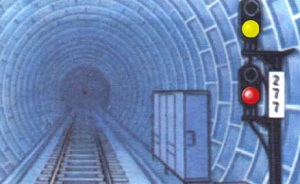
|
| One red light, "OP" ("ОП"): Tracks and dead ends are terminated with one red light and a "ОП" (опасность/opasnost, danger) sign. Do not cross under any circumstances!
|
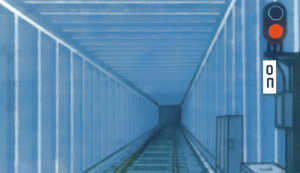
|
| One flashing red light, "DOP" ("ДОП"): "ДОП" (добавочный опасность/dobavochnyy opasnost) means "additional danger". This indicates that there is a temporary change to the track configuration which should be treated as a dead end. For example, if a track switch is in the wrong position as you approach a merging junction, as it would derail the train when passing over it.
|
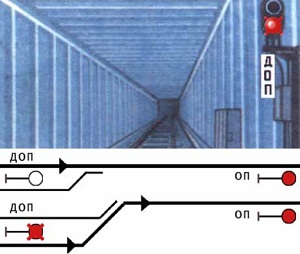
|
| Red signal with KGU (КГУ): The KGU sensor detected oversized parts of the train.
|
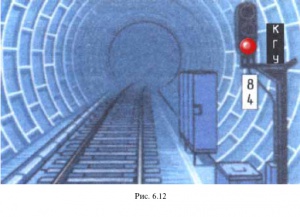
|
| One red light, one flashing white light: Train is invited to proceed through the red light, no faster than 20 km/h. Train must stop at the next obstacle. The dispatcher must be notified before train starts moving and after it passes the white light.
|
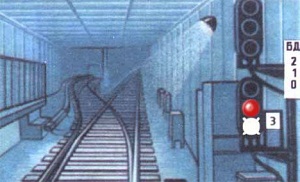
|
| One red light, one white square light: Train is invited to proceed through the red light, no faster than 20 km/h. Train must stop at the next obstacle. The dispatcher must be notified before train starts moving and after it passes the white light.
|

|
| One green light: Driving is permitted with the current speed limit.
|

|
| One yellow light: Driving is permitted, next signal is red. Proceed at reduced speed and expect to stop.
|

|
| One yellow, one green light: Driving is permitted with reduced speed, no faster than 60 km/h. Next yellow light must be crossed at no more than 35 km/h.
|
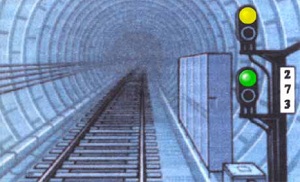
|
| One blue light: Driving is permitted according to ALS-ARS indications. If ALS indicator displays 0, ERR/NOS, or flashing ERR and 0 then the train is forbidden to cross it.
|

|
| One flashing yellow light, one yellow light: Driving to alternate track is permitted. Next signal is yellow or green.
|
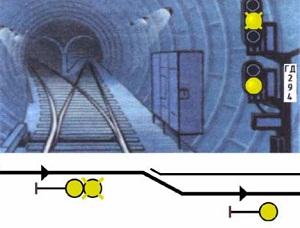
|
| Two yellow lights: Driving to alternate track is permitted. Next signal is red.
|
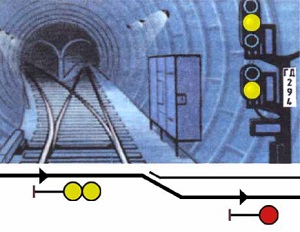
|
| Repeater: Repeat all signals from main.
|

|
| Reserved.
|
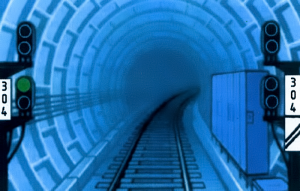
|
| Inactive.
|
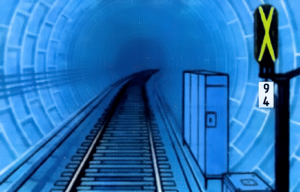
|
Signals for stations with platform doors
| One square white light if station doors are closed, and two round white lights if the space between train and wall is empty.
|

|
Temporary signpost-style signals
| One red light: Stop! Driving through is prohibited.
|
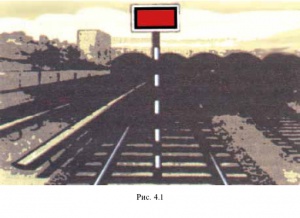
|
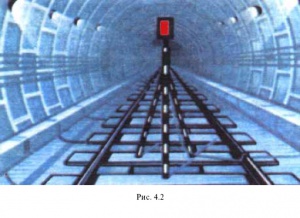
|
| One yellow light: Driving is permitted with reduced speed, no faster than speed specified in warning, if no warning - not faster than 20km/h.
|
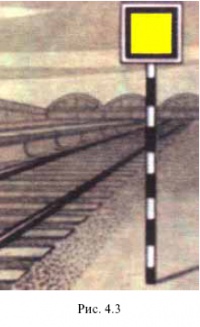
|
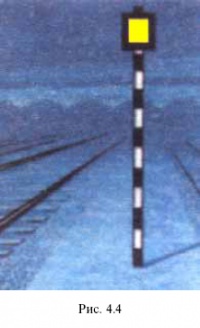
|
| One green light: All train passed dangerous place.
|
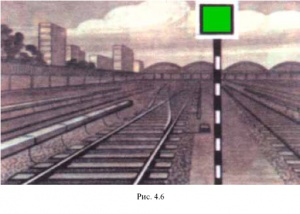
|
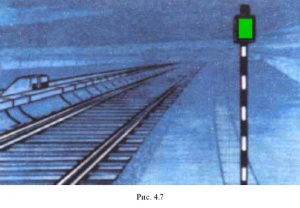
|
| "Halt! Contact rail under voltage!"
|
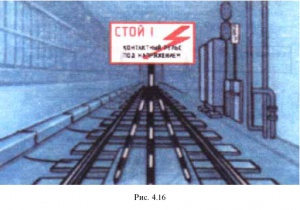
|
Sound signals
Sound signals are given by train whistles/horns, hand whistles or bell rings.
| Signal
|
Signal meaning
|
Issued by
|
Three short
• • •
|
Stop!
|
Driver, guard, depot workers
|
Two short
• •
|
Proceed Slowly
|
Driver, guard, depot workers
|
| Call station worker, instructor, SCB-mechanic to the tunnel-communication phone
|
Train driver
|
One long
—
|
Proceed
|
Train driver or guard (guard in opposite cabin repeats the signal)
|
| Start manoeuvring train to the signal side
|
Depot workers (driver repeats the signal)
|
Two long
— —
|
Move away from the signal source
|
Depot workers (driver repeats the signal)
|
| Transfer responsibility for controlling the train to the driver/guard in the opposite cab
|
Driver relinquishing control
|
| Request service train workers to release parking brakes
|
Service train driver (service train guard repeats the signal, located on the station with manual brakes, or the driver of the auxiliary train)
|
| Third rail is switched off; it is safe for workers to enter the tunnel and walk on the tracks. Workers who enter the tunnel must be written into the tunnel pass accounting journal.
|
Workers
|
Signs
| Speed limit in in km/h.
|
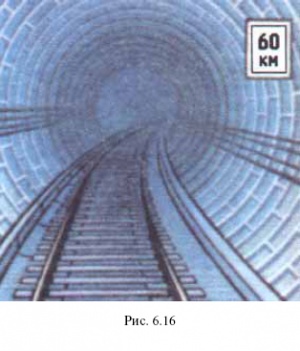
|
| Tормоз Сбор (assemble brakes): Assemble brake circuits (brake)
|

|
| S (С): Prepare to check the status of the upcoming signal
|
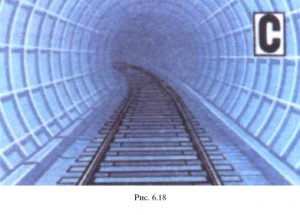
|
| Assemble power circuits (accelerate), typically to climb a gradient
|
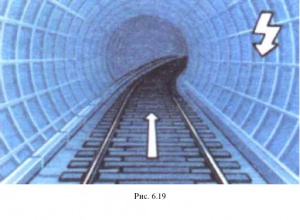
|
| Disassemble power circuits (stop accelerating)
|
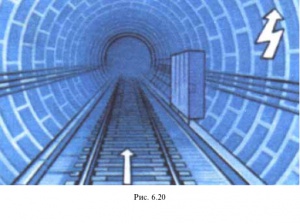
|




























